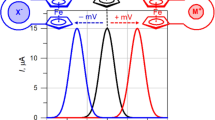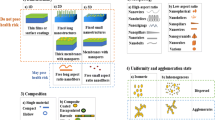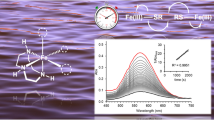Abstract
A variety of reactions containing different amounts of nickel ions together with vitamin C were prepared and used in spin trapping experiments designed to show nickel is not a Fenton active metal. Carbon based radicals were observed at low ratios of ascorbate to nickel, and ascorbate radical was observed at high ratios of ascorbate to nickel. No buffer effects were observed. There was no evidence for oxygen intermediates as products of the reaction with 5,5-dimethyl-1-pyrroline N-oxide (DMPO) or α-(4-pyridyl-1-oxide)-N-tert-butylnitrone (POBN), seeming to indicate nickel is not a Fenton metal. To test this hypothesis further trapping studies were run with the singlet oxygen trap 2,2,6,6-tetramethyl-4-piperidone hydrochloride, in which dioxygen was found not to affect the formation of carbon radicals. These results help to explain the damage to DNA observed in the presence of vitamin C and nickel in vitro.
Similar content being viewed by others
Author information
Authors and Affiliations
Additional information
Received: 28 July 1999 / Accepted: 10 November 1999
Rights and permissions
About this article
Cite this article
Salacinski, H., O'Brien, P. Evidence that the reactions of nickel in the presence of vitamin C do not produce toxic oxygen intermediates such as hydroxyl but ascorbate and carbon radicals. Arch Toxicol 74, 5–12 (2000). https://doi.org/10.1007/s002040050645
Issue Date:
DOI: https://doi.org/10.1007/s002040050645




